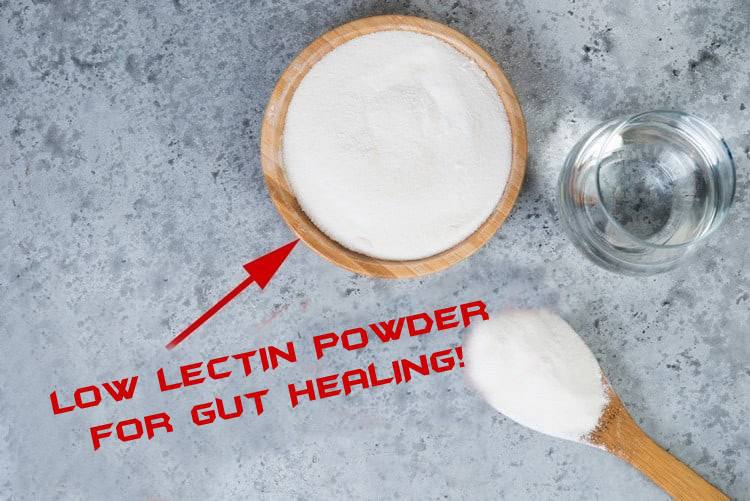Low Lectin Vegetables – A Comprehensive Guide
Curious about low lectin vegetables and their benefits?
We explore what exactly lectins are and which vegetables are low in this protein. From the nutrient-rich onion to the anti-inflammatory properties of garlic, we discuss the numerous benefits of incorporating these veggies into your diet.
But are all low lectin vegetables safe for everyone? We also dive into potential concerns like FODMAPs.
Learn how to easily add these veggies to your meals!
What Are Some Examples of Low Lectin Vegetables?
Here are some vegetables that all were shown not to contain lectins in research: ¹ ²
- Onion
- Carrot
- Sweet potato
- Celery
- Lettuce
- Cassava
- Garlic
- Radish (root, leaf)
Generally speaking, leafy greens seem safe choices as low lectin vegetables. Soon we will add an article on high lectin vegetables so stay tuned.
Tired of eating the same old stuff?
Did you know food variation can help you get more nutrients?
Paleo is very similar to low lectin, and can be adapted to low lectin with minimal effort. They generally recommend eating whole foods like meats, fruits, vegetables, and nuts. Therefore, I recommend checking out paleo recipes like the ones below!
Basic Paleo Recipes
Explore easy, nutritious paleo recipes to make your daily meals more exciting.
Learn MorePaleo Snacks
Discover quick and healthy paleo snacks to keep you energized throughout the day.
Learn MoreWhat Are Lectins?
Lectins are a diverse family of proteins found in plants, with the ability to bind to carbohydrates. They are considered antinutrients as they can interfere with the absorption of certain nutrients in the body.
These plant-derived proteins play a critical role in the defense mechanism of plants against predators and pests. By binding to specific sugar molecules on the surface of cells, lectins can prevent insects and other organisms from consuming plant tissues.
While this defense mechanism benefits plants, it may pose challenges to human health when consumed in large quantities or to certain people. Some research suggests that lectins may contribute to gut inflammation and interfere with nutrient absorption, potentially leading to digestive issues and nutrient deficiencies.
What Are Low Lectin Vegetables?
Low lectin vegetables are plant-based foods that contain minimal levels of lectins, making them suitable for individuals following a lectin-free or low lectin diet.
These types of vegetables play a crucial role in diversifying the diet of those looking to reduce their lectin intake. Incorporating low lectin vegetables into meals can offer a range of nutritional benefits, such as vitamins, minerals, and antioxidants, without the concerns associated with high lectin content.
Whether you are focusing on optimizing your health or managing specific dietary restrictions, these plant-based options provide a versatile and delicious way to support your overall well-being while maintaining a lectin-conscious approach to eating.
What Are the Benefits of Low Lectin Vegetables?
Low lectin vegetables offer numerous health benefits, including being rich in essential nutrients, possessing anti-inflammatory properties, aiding in weight loss, and promoting better digestion.
These vegetables are packed with vitamins, minerals, and antioxidants that play a key role in supporting overall well-being. By incorporating low lectin vegetables into your diet, you can boost your immune system and enhance your gut health.
The abundance of fiber in these vegetables also helps in maintaining a healthy weight and improving digestion. Their low lectin content makes them a good fit for people who are sensitive to high lectin foods.
Are All Low Lectin Vegetables Safe for Everyone?
While low lectin vegetables are generally considered safe and healthy, some individuals may need to be cautious due to factors such as specific allergies or food sensitivities like FODMAPs.
Obviously you should avoid eating any foods that you have allergies to, even if they are low in lectins.
FODMAPs are a group of fermentable carbohydrates found in some vegetables, can also cause digestive discomfort for those with sensitivities.
Two examples of high fodmap foods that are also low lectin vegetables are onions and garlic. You may want to avoid these foods while you are fixing your gut health to reverse this sensitivity.
It’s important to be mindful of these factors when incorporating low lectin vegetables into your diet, as they can have varying effects on different individuals based on their unique health profiles.
How to Incorporate Low Lectin Vegetables into Your Diet?
There are various ways to include low lectin vegetables in your diet, such as roasting or grilling them, incorporating them into soups or stews, and using them as substitutes in recipes for added nutrition and flavor.
By utilizing culinary techniques like sautéing or stir-frying, you can bring out the natural sweetness of these nutritious veggies. Experiment with different low lectin herbs and spices to enhance the taste profile of your dishes.
Incorporating these veggies in salads or wraps can provide a refreshing and wholesome meal. Meal planning can also help you incorporate a variety of low lectin vegetables throughout the week, ensuring a balanced and flavorful diet.
You can also use them as substitutes in recipes that traditionally use high lectin vegetables, for example swapping potatoes for sweet potatoes.
Resources:
1. http://medicinalplants-kr.org/
2. https://sciendo.com/article/10.1515/sjecr-2016-0031

